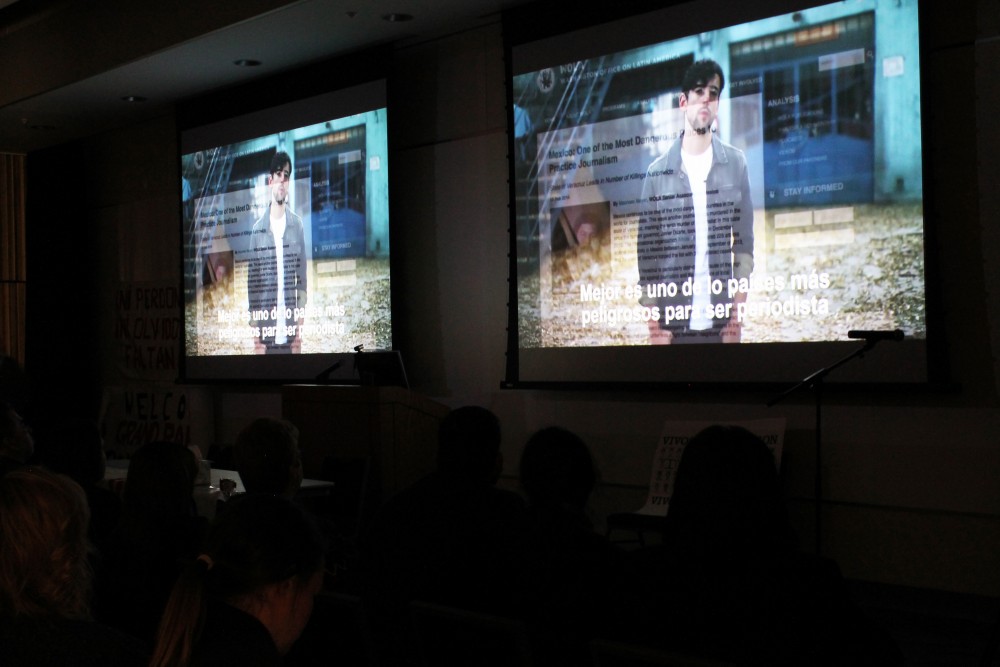Searching for justice

GVL / Sara Carte
Apr 9, 2015
Family members of some of the 43 college students who disappeared in Iguala, Mexico last September made a stop in Allendale this week on their national “Caravan 43” tour to call for awareness of the violence in Mexico and to share their struggle to find their children.
The event was held on Tuesday, April 7 at Grand Valley State University’s Mary Idema Pew Library.
Maria de Jesus Tlatempa, a mother of one of the victims, said the students were persecuted by the local police. Her message is to share her feelings of anger and pain and to direct those feelings toward the Mexican government.
“The feeling of not being able to help your child in that moment,” she said. “Imagine that.”
On Sept. 26, 2014, a group of students from the Ayotzinapa Rural Teachers’ College in the state of Guerrero, Mexico, commandeered buses and drove to the city of Iguala to protest government discriminatory practices. Tlatempa’s son was among them. What resulted was a violent clash with police.
Local authorities captured the students and allegedly handed them over to a local gang and blamed the local mayor and his wife for the abduction. Some students were killed in the confrontation.
The state prosecutor found mass graves in Iguala, including 28 burned bodies. However, details of the event remain muddy and the families still demand answers.
“The government has done nothing to help us,” Tlatempa said. “They have not given us information as to where our children may be.”
The families are now working to gain global support for their struggle for justice.
“We want to ask you all for your support so that you all know the truth, and so you can tell the real truth,” Tlatempa said.
The families don’t believe the government’s official version of events, and they hold out hope their children are alive.
“Since that day we have lived with that anger – that indignation with our government – and hope that we’re going to find them,” Tlatempa said. “And we’re not going to stop looking until we find them.”
Cruz Bautista Salbador, the uncle of one of the missing students, said there are irregularities in the official investigation of the mass graves.
“We do not believe the version that they’ve given,” he said. “The action of the government was a simulated action.”
Bautista said forensic evidence has not been conclusive in identifying the bodies. He said it was raining the night they were said to have been burned. The amount of materials necessary to burn all of the bodies makes the scenario nearly impossible, he said.
“We demand, as family members, as parents, that the government give us a scientific and real explanation,” he said.
The investigators claimed all the students’ materials were burned along with their bodies, and yet their cell phone signals are still active, Bautista added.
“We do have reason to believe our students are still alive,” he said. “And so we’re asking you to put pressure on the government and ask them to help us find where our students are.”
Families and activists are organizing a march on Sept. 26, as well as action days on the 26th of each month, to keep the momentum going for their cause. The families also plan to take their case to the Inter-American Commission, Amnesty International and the United Nations.
The families encourage people to write letters to President Obama and Mexican government leaders to request their support, get involved on social media and continue to spread awareness.
“We don’t want this to be left in the dark, to be brushed under the carpet,” Bautista said.






















